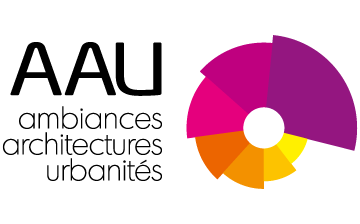Experts et consultants au service de l’action publique locale : une approche pragmatique du travail de l’ingénierie privée
Experts and consultants for local public action: a pragmatic approach to the work of private engineering
Nicolas Bataille - Thèse de doctorat soutenue en 2020
Encadrement : Directeur de thèse Denis Martouzet, CITERES MSH Tours, Laurent Devisme
Financement : Convention CIFRE (MENSR/ANRT) avec l'entreprise KERAN à Nantes. Chercheur contractuel au laboratoire PACTE
FR
Dans l’aménagement de l’espace et de l’environnement, les acteurs de l’ingénierie privée occupent une place grandissante dans la mise en œuvre des politiques publiques. Ces invisibles des projets, parfois considérés comme des « experts », sont réputés accompagner les collectivités locales sur les dimensions techniques. Du reste, ils ne sont pas imperméables aux mutations contemporaines du capitalisme qui affectent l’action publique locale. Dans ce contexte, ils se veulent acteurs du changement et soutiennent des approches renouvelées pour répondre à une complexification supposée. À partir d’une enquête ethnographique, cette thèse qualifie le travail de ces bureaux d’études, sociétés d’ingénierie et de conseil dans l’action publique locale. Le cadre de la sociologie pragmatique des épreuves permet de comprendre le travail d’élaboration de dispositifs, mais aussi de production de catégories et de critique, qui est au principe de leur activité. Ce travail documente notamment un changement normatif global autour de la notion de projet au détriment d’une rationalité techniciste, modifiant l’action publique locale dont l’ingénierie privée est un miroir. Tout d’abord, dans l’organisation et le travail, les pratiques de l’expert sont dévalorisées face aux capacités d’animation prêtées au chef de projet. Pour autant, ce dernier subit les injonctions contradictoires de la mise en discussion permanente. Ensuite, face au client, l’ingénierie s’affiche de plus en plus comme « consultant », pour transformer la relation d’exécutant en partenariat. Cette coordination engendre un travail de négociation du besoin tout au long de la mission. En outre, les changements globaux dans la division du travail en aménagement favorisent une coordination plus locale et incertaine au détriment d’un État technocrate. Le recours à l’ingénierie privée est vu comme un moyen de retrouver de la souplesse entre des acteurs de plus en plus nombreux. Enfin, le travail de l’ingénierie dans le cours des projets montre, au-delà de la technique, l’important travail politique de composition d’un collectif et d’attribution des rôles pour permettre l’aboutissement du projet. Finalement, cette étude montre l’évolution de la coordination dans la fabrique de l’espace, entre maintien de dispositifs de la décision linéaire et nouvelles modalités d’échanges itératifs. Ce compromis amène à un confinement des débats politiques sur les fins du projet, alors que la priorité est donnée aux moyens de le faire aboutir.
EN
In spatial and environmental planning, the private engineering actors hold a growing place in the implementation of public policies. At times considered as “experts”, these invisible elements of projects are known for assisting local authorities on technical dimensions. Incidentally, they are not impervious to the contemporary mutations of capitalism, which affect local public action. In this context, they become actors of change and support renewed approaches to face a supposed complexification. Based on an ethnographic investigation, the thesis describes the work of engineering and consulting firms on local public action. The framework characterized by the pragmatic sociology of tests allows us to understand the work carried out to develop mechanisms, as well as to produce categories and critiques, which is the guiding principle of their activity. This research work documents a global normative change around the concept of project at the expense of a technicist rationality, which modifies local public action where private engineering represents a mirror. Firstly, in terms of organization and work, the expert’s practices are downgraded in the face of the animation capabilities given to the project’s leader. However, the latter is subjected to the contradictory orders stemming from the permanent discussion. Secondly, facing the client, engineering is increasingly known as a “consultant” to transform the executive relationship into a partnership. This coordination creates the negotiation of needs throughout the mission. Moreover, the global changes that divide the work into a planning work encourage a more local and uncertain coordination, at the expense of a technocratic State. Relying on private engineering is seen as a way to regain flexibility between an increasing number of actors. Lastly, the engineering work throughout the projects showcases, beyond technique, the important political work in the attribution of roles to carry out a project. Ultimately, this study shows the evolution of coordination in the construction of space, between the preservation of mechanisms of linear decision-making and new modalities of iterative exchanges. This compromise leads to the containment of political debates over the project’s ends, while priority is given to the means to accomplish it.
